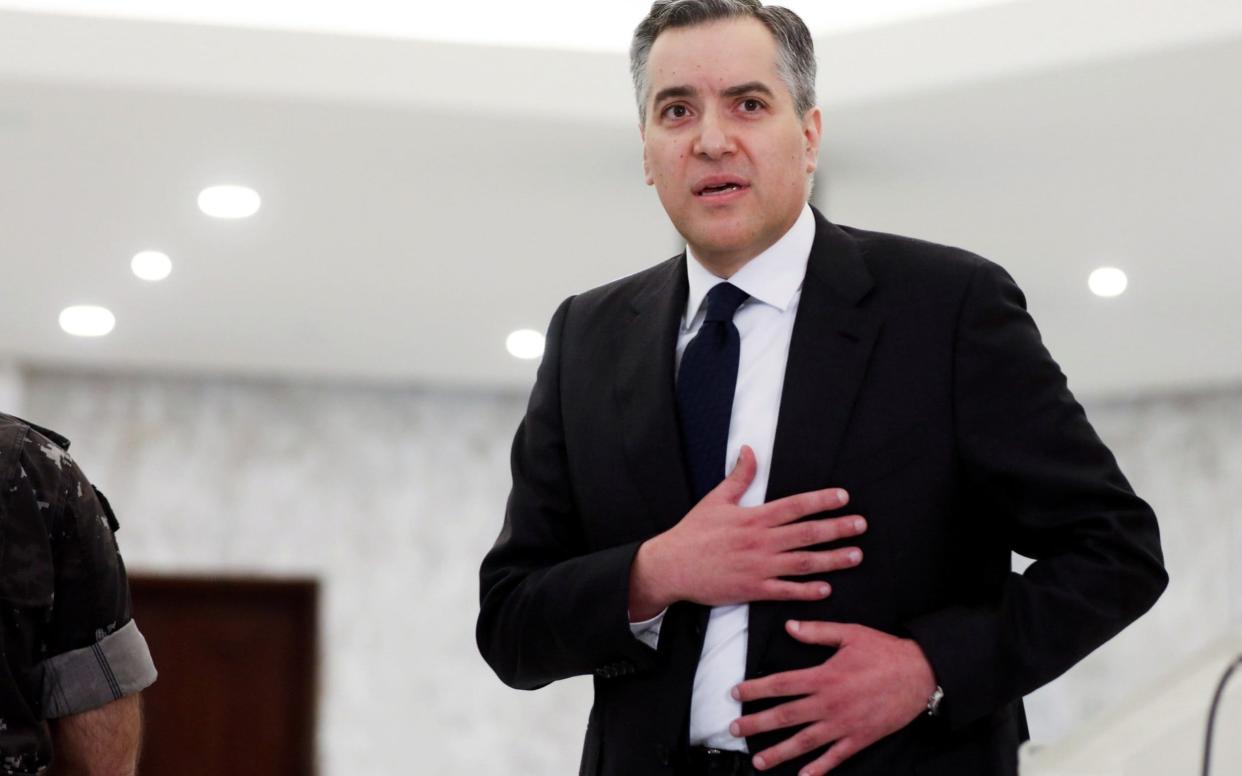Lebanon's hopes for reform collapse as PM-designate Adib resigns

Lebanon’s Prime Minister-designate, Mustapha Adib, resigned on Saturday after almost a month of trying to form a government that would reduce the influence of the main political blocs that have brought the crisis-hit country to the edge of collapse after 30 years of corruption.
The resignation of Mr Adib, who was chosen on August 31 to form a new cabinet after the last government quit following the Beirut explosions, serves a blow to France’s rescue plan of the country.
The negotiations to form a non-partisan cabinet of experts instead of party loyalists were brought to a deadlock over who would nominate names for key ministries and in particular the finance ministry.
As Mr Adib pushed for control of the key ministries to be rotated among the country’s main sects - namely, Sunnis, Shias and Maronites - the Shi’ite duo Hizbollah and its ally the Amal Movement held firm on their grasp of the finance ministry.
Last month the US slapped sanctions on one of the top aides of Nabih Berri, the head of the Amal movement who has named the finance minister for many years, as well as cabinet ministers and close allies of Hezbollah. Their grip on the ministry tightened, bringing Lebanon’s sectarian politics back into deadlock.
Mr Adib told reporters that he was stepping down because forming a non-partisan government to unlock desperately needed foreign aid is "bound to fail".

“When will you finally stop playing your usual games, listen to the cries and needs of the people, prioritize the future of Lebanon?”, the United Nations’ Special Coordinator for Lebanon, Jan Kubis, tweeted in reference to the country’s politicians.
Lebanon’s economic crisis, which has seen the local currency lose over 80 per cent of its value this year and over half the country plunged into poverty, continues unabated with the political elite refusing to make the basic reforms to unlock foreign aid.
The resignation of Mr Adib comes just days after President Michel Aoun claimed that Lebanon was “headed to hell” if it didn’t form a government quickly.
The politicians had already missed France’s 15-day deadline to form a new government in the middle of September, the first step in France’s roadmap to stopping the former French protectorate from becoming a failed state.
French President Emmanuel Macron accused Lebanon's leaders of "collective betrayal" over their failure to form a government in the wake of the giant blast at the Beirut port in August.
At a rare news conference devoted to Lebanon, Mr Macron launched an extraordinary diatribe against Lebanese political elite who he said had looked to their own selfish interests rather than those of their country.
"They have decided to betray this commitment (to form a government)," Mr Macron told reporters, declaring he was "ashamed" of the country's leaders.

"I see that the Lebanese authorities and political forces chose to favour their partisan and individual interests to the detriment of the general interest of the country," Mr Macron added.
Mr Macron said none of the leaders of Lebanon - where in the wake of the 1975-1990 civil war power is traditionally shared between Shiites, Sunnis and Christians - had been up to the task.
"All of them bet on the worst case scenario for the sake of saving themselves, the interests of their family or their clan," he seethed.
"I therefore have decided to take note of this collective betrayal and the refusal of Lebanese officials to engage in good faith."
He also sent a pointed warning to the Iran-backed Shiite group Hezbollah, which was well represented in the outgoing government and some analysts accuse of holding up the process.
Hezbollah should "not think it is more powerful than it is.... It must show that it respects all the Lebanese. And in recent days days, it has clearly shown the opposite," said Mr Macron.
The French president said that the roadmap for political and economic reform set out on his last visit on September 1 was still on the table but time was running out.
"It is now up to Lebanese officials to seize this last chance themselves," he said.


